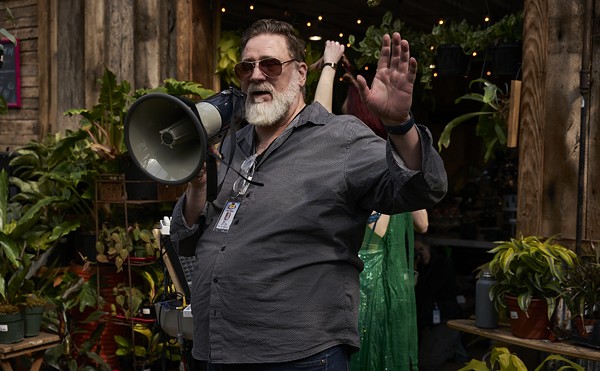Who's to stop them? No one. In the days of analog recording and real live bands, it was the producer's job to slap the artists around when they overindulged in their music; now the roles of "producer" and "musician" are synonymous, and we're all paying for it: Too bored to leave a nice melody well enough alone, too pumped to let a beat sit in simple 4/4 time without endlessly subdividing it into minuscule increments, these men -- and, yes, they're all men -- need a good editor. Someone to scream, "Enough already!" lest they crash their brains with too many countermelodies and an endless supply of "complex beats."
More than anyone, Richard D. James, a.k.a. Aphex Twin, is responsible for this mess, but it's not his fault. His visionary work in the early and mid-'90s celebrated the computer's incredible potential for creating a music impossible to replicate by real live humans; like Conlon Nancarrow's work for the player piano in the '40s and '50s, James' work for the computer sounds humanly impossible.
His label, Rephlex, has just released The Braindance Coincidence, and it's filled to the brim with James disciples. It's about half successful, and each artist's success level is directly proportional to his level of restraint. Those most successful are those smart enough to know when a track is finished -- when any more fiddling will unnecessarily muss things up -- and most are piled at the beginning of the compilation: The Gentle People, Global Goon and Baby Ford seem to appreciate at least a little bit of space, the glory of a straightforward, interesting melody, and understand the difference between medium-rare and burnt to a crisp. In tones very synthetic and transhuman, these artists shine their sounds with affection and respect, and the result is music that celebrates the song without trampling all over it.
Less successful are those, such as Vibert Simmonds and Bogdan Raczynski, who seem aimless, lost inside an overly complicated set of parameters. On the latter's "Death to the Natives," three songs seem to be attempting to simultaneously reveal themselves, songs that on their own could be as glorious as the Global Goon's (Is this Richard James in disguise? Or is it the Railway Raver? Or Vulva? Or all three?) "Long Whiney." But none prevails, and the whole mess seems to cancel itself out. If only Raczynski and Vibert Simmonds had walked outside their studio for a breath of fresh air, maybe picked a daisy along the way and appreciated the beauty of simplicity, maybe our brains, and our butts, would be dancing along with them.





